
Home > Business
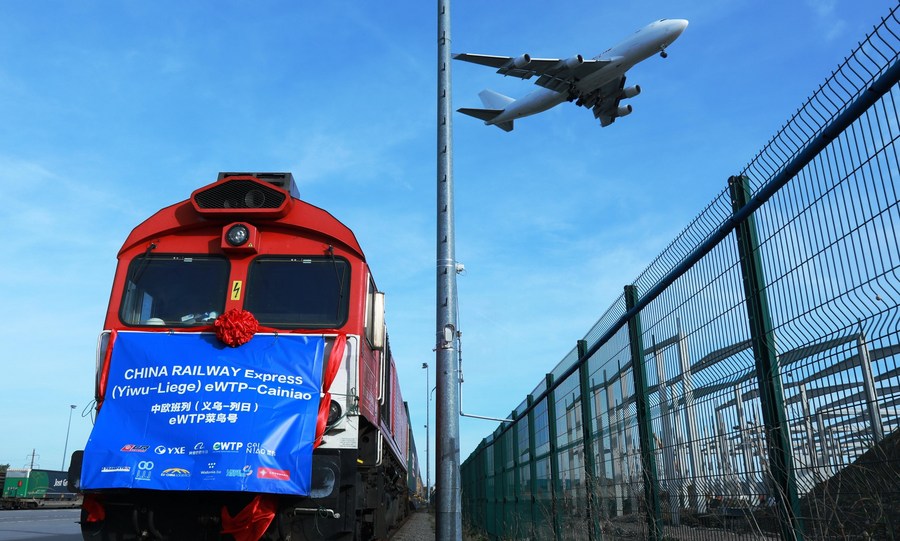
The first freight train of the China Railway Express (Yiwu-Liege) Alibaba eWTP Cainiao arrives in Liege, Belgium from Yiwu, China on Oct. 25, 2019. (Xinhua/Pan Geping)
BEIJING, Feb. 3 (Xinhua) -- Ever since its launch in 2011, the China-Europe rail transport service has proven a powerful example of how Belt and Road cooperation can drive common development and prosperity of China and Europe with enhanced connectivity.
Yiwu, China's small commodity hub in the eastern Zhejiang Province, is among the many cities across the Eurasian continent that benefit from the service. The city will launch more than 1,500 Europe-bound freight trains this year, according to a work report of the Zhejiang provincial government.
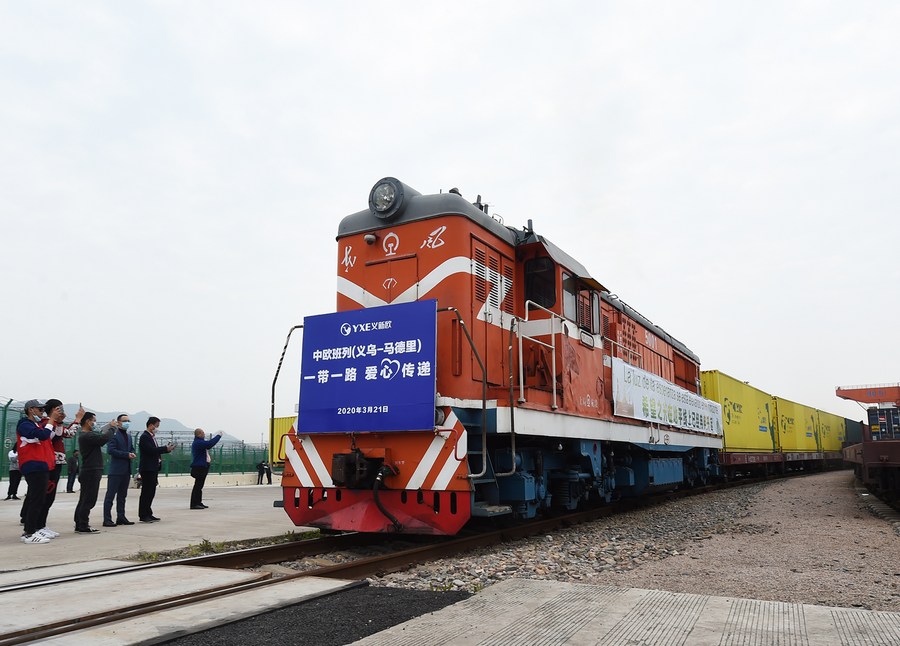
A China-Europe freight train carrying two containers of medical supplies among other goods leaves for Madrid, Spain from Yiwu China on March 21, 2020. (Photo by Gong Xianming/Xinhua)
The cargo route linking Yiwu with Europe via Xinjiang in northwest China handled 1,399 China-Europe freight trains in 2020, soaring by 165 percent year on year, said the report reviewed at the ongoing annual session of the provincial legislature.
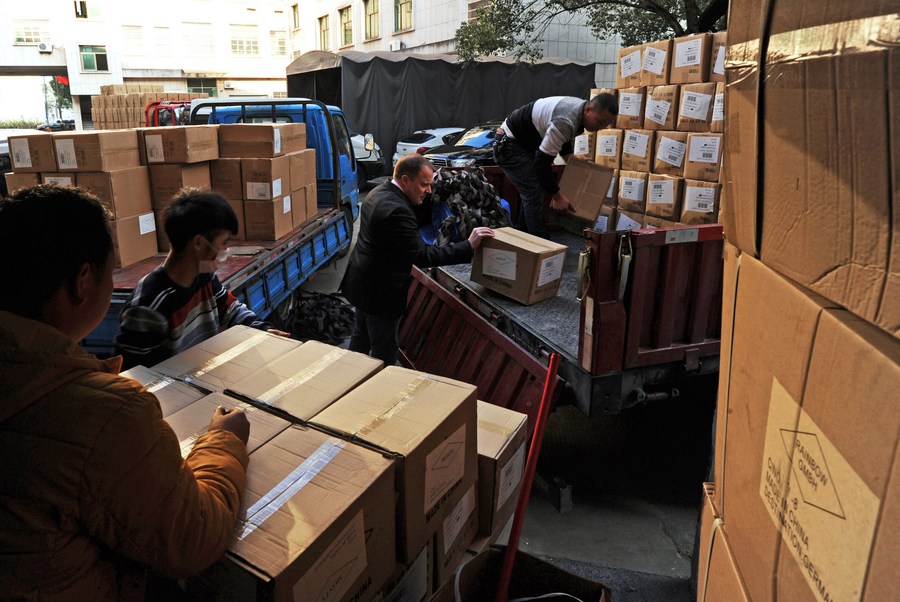
British businessman Nigel Cropp (center) checks out products to be exported via a China-Europe freight train at his company warehouse in Yiwu, China on Nov. 28, 2019. (Xinhua/Tan Jin)
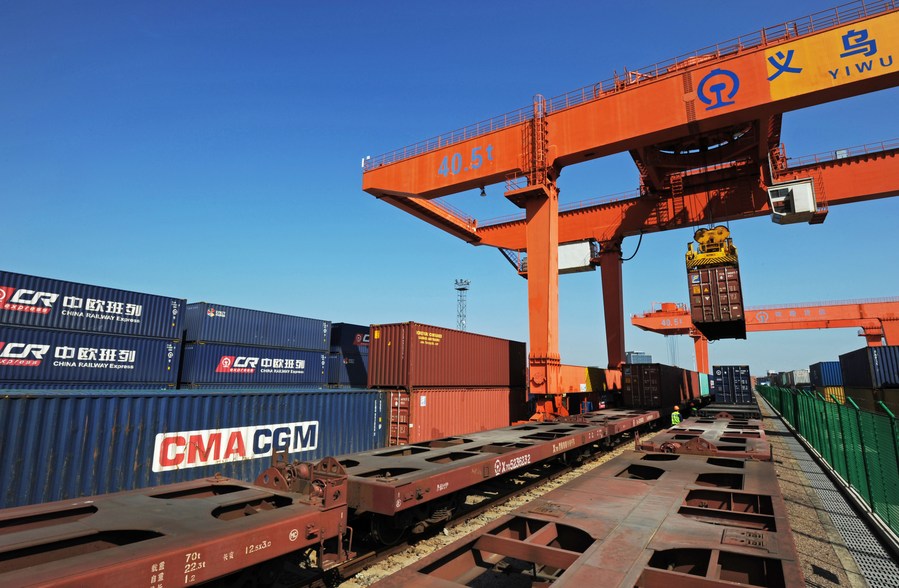
A gantry crane loads a container onto a China-Europe freight train in Yiwu, China on Oct. 27, 2018. (Xinhua/Tan Jin)
As a major foreign trade engine in China, Zhejiang saw its exports grow by 9.1 percent, year on year, to nearly 2.52 trillion yuan (about 388.5 billion U.S. dollars) in 2020. It accounted for 14 percent of the country's total export volume.
For Yiwu's part, cargo train service to Europe had started on Nov. 18, 2014 and expanded rapidly in the years to follow (see chart below). Since its launch, the cargo train service in Zhejiang has opened 15 routes, connecting 49 countries and regions in Asia and Europe.
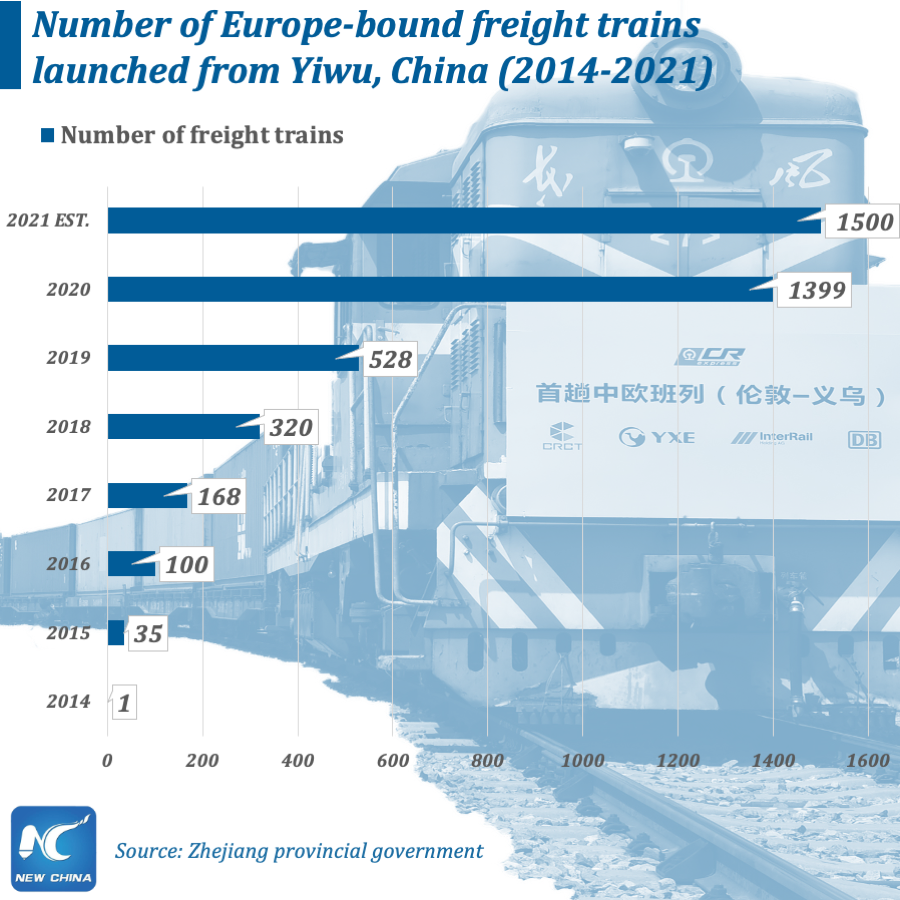
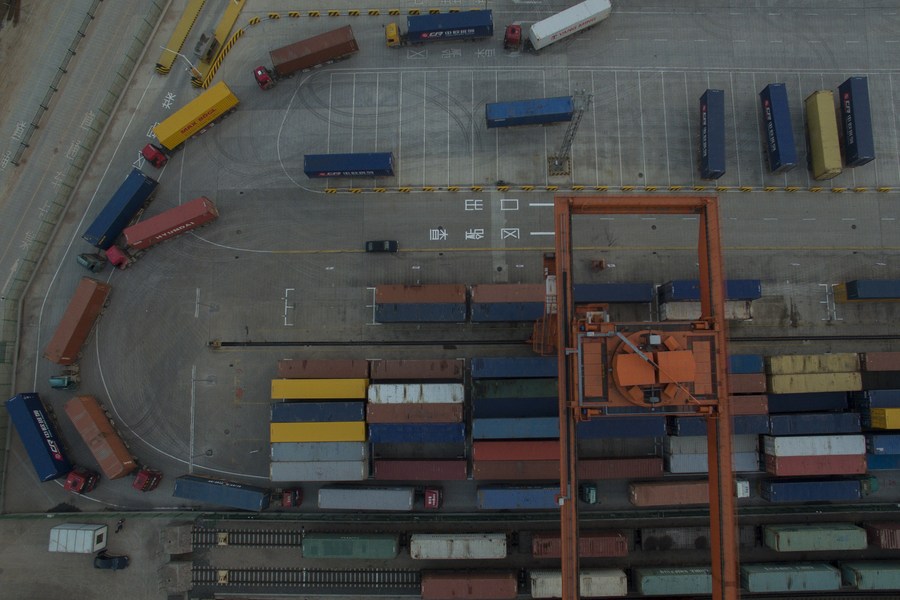
Trucks carrying Chinese goods unload containers to be transported via the China-Europe freight train service at Yiwu West Railway Station on Dec. 28, 2016. (Xinhua/Huang Zongzhi)
Rumbling along the routes, the freight trains take garments, auto parts, chemicals and other Chinese goods to European consumers, while taking back European food, machinery, equipment and timber on their return journeys.

Two Spanish farmers display local wine products which will be exported to China via the Yiwu-Madrid freight train service at a vineyard in Valladolid, Spain, Sept. 24, 2017. (Photo by Guo Qiuda/Xinhua)
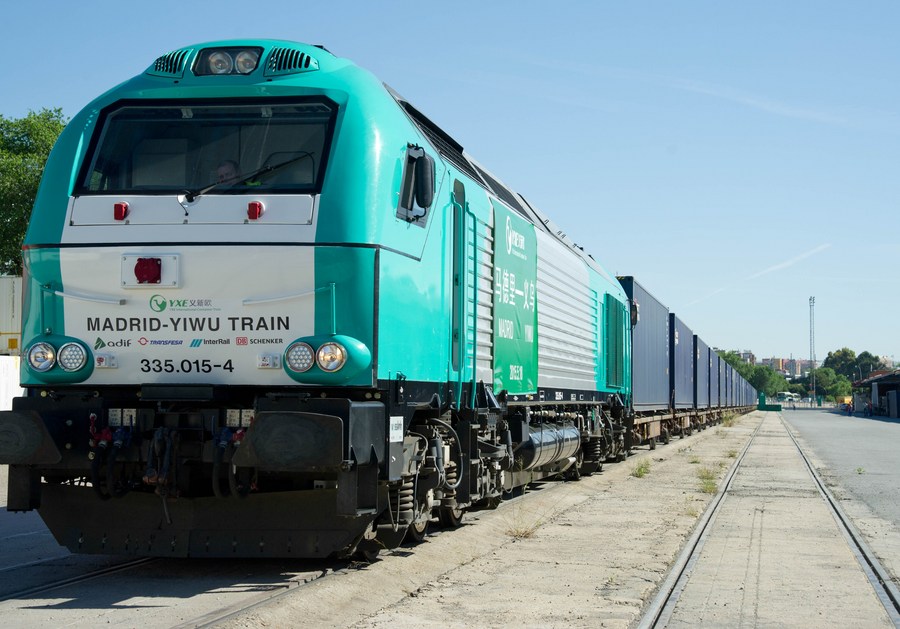
A freight train leaves for Yiwu, China from Madrid, Spain on May 18, 2015. (Photo by Xie Haining/Xinhua)
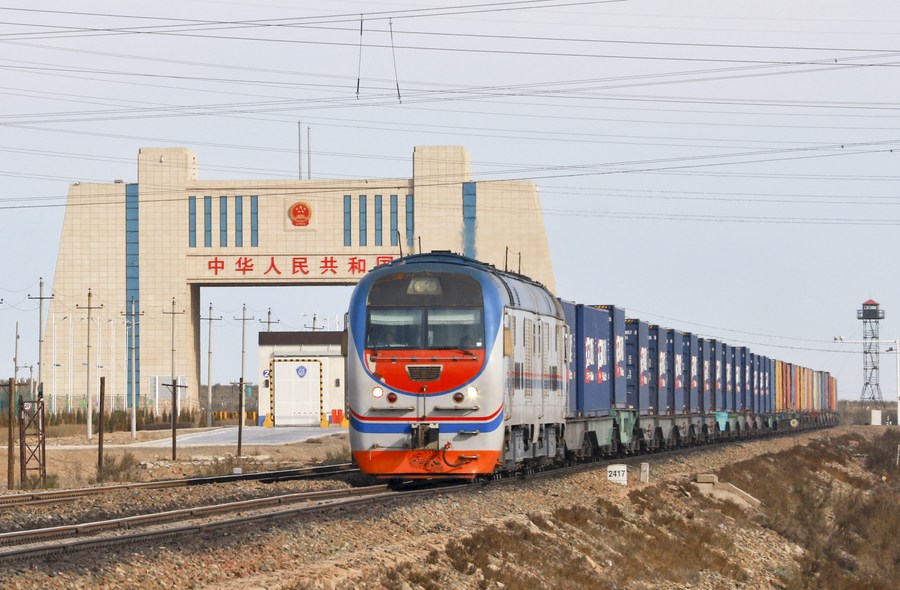
The first London-Yiwu cargo train carrying British products enters China through Alataw Pass in northwest China's Xinjiang Uygur Autonomous Region, April 24, 2017. (Xinhua/Zhang Yongheng)
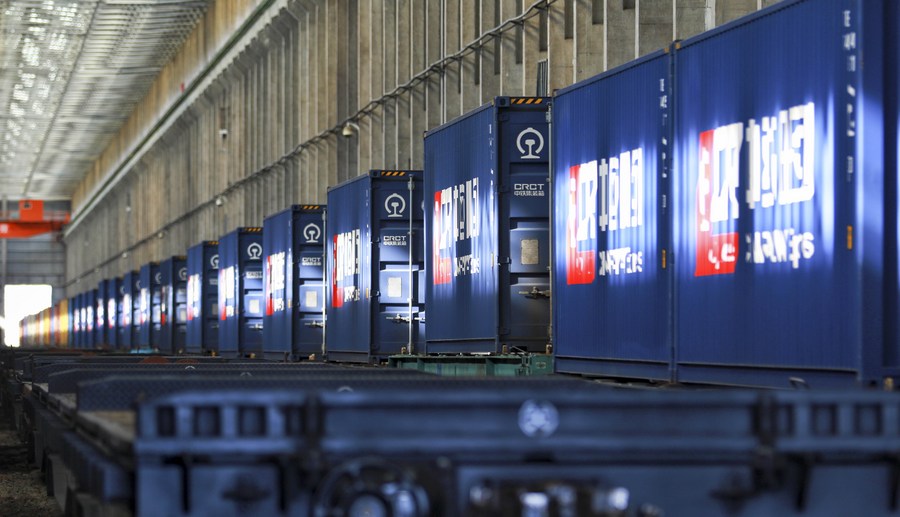
The first London-Yiwu freight train carrying containers laden with British products pulls into Alataw Pass in northwest China's Xinjiang Uygur Autonomous Region during its trip to Yiwu, China on April 24, 2017. (Xinhua/Zhang Yongheng)
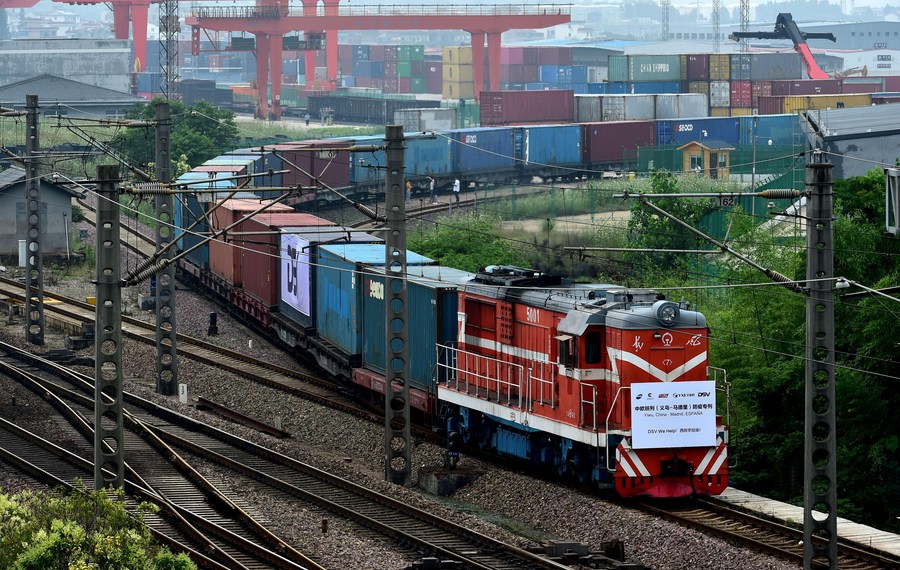
A China-Europe freight train carrying medical supplies bound for Madrid, Spain departs from Yiwu, China on June 5, 2020. (Photo by Lyu Bin/Xinhua)
As the COVID-19 pandemic greatly affected sea and air transport capacity, the China-Europe freight train service played a significant role in stabilizing international railway logistics. It ensured the smooth transportation of goods including epidemic control materials, given its all-weather, stable and regular features.■